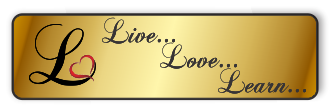You may not have a college degree, but if you want to move up in the world, good verbal and written communication skills can help make you sound like you do. This is so easy if you know just five groups of words and how they’re supposed to be used. (There’s a tip about punctuation at the end too!)
I’m on social media a few hours a day and I see these errors all the time. As a hiring manager, I used to see them on resumes too. (Those usually went immediately to the circular file!) The scary part is that I know a lot of those people making these simple mistakes are college educated and very successful. At least you’re in good company, right? Ha! Of the unemployed if you aren’t aware of these errors!
The proper use of the following five groups of words will work wonders in making a good impression on potential employers, future coworkers and all the other people who might see you on Facebook, Twitter or LinkedIn. Yeah, remember, everybody can see you on the internet!
There, Their, and They're
There
A place, as in, “Over there,” or, “Oh, Davison High School? I went to school there.”
Remember, if the possessive/”belonging to” version shown to the right, or the two-words version, shown below, aren’t appropriate, then you should also use this form of the word “there.” For example, “how many are there?”
Their
Belonging to someone, someplace or something, as in, “It’s their fault,” or “Mittens and Bullet always kick the litter out of their box.”
Extra Tip:
Notice that in both examples I’m talking about multiple people or cats. If there were just one person or cat, then you would use “his” or “her” instead of “their.”
They're
A combination of the two words, “they are,” as in “they’re moving in” would sound fine if said as, “they are moving in.” “I wonder where they’re going” also works with “they are.”
If you aren’t sure, see if you can substitute the two words (they are) for the one word “they’re.” If that works, then “they’re” is the right way to do it.
Your and You're
Your
Belonging to someone, as in, “that’s yours” or “where is your car?”
You're
A combination of the two words, “you are,” as in “where do you think you’re going” or “you’re crazy if you believe that.”
If you aren’t sure, see if you can substitute the two words (you are) for the one word “you’re.” If that works, then “you’re” is correct.
To, Too, and Two
To
Usually a place or direction as in, “I’ll be running to the store after work.”
If you are writing a sentence and the next two options don’t work well, then use this one. For instance, “How am I going to say this otherwise?”
The word “also” doesn’t apply in that sentence, as explained in the example to the right, and I’m not referring to two items, as explained in the example below.
Too
Same as the word “also,” as in, “I’ll be visiting Paris too,” or “I want that one too.”
Should also be used when something is excessive, such as too long, too short, or too far.
Two
Spells the number “2.” No exceptions.
No and Know
No
It’s a negative as in “no you can’t, no way, no how.”
Know
Refers to your knowledge, as in “what do you know?”
Is and Are
Is
Singular connecting verb as in “There is one person,” or, “your tie is crooked.”
Are
Plural connecting verb as in “There are two people,” or, “it’s so easy to get lost in this town since there are so many one-way streets.” Since the word “many” means more than one you should use “are” in this last sentence.
Punctuation Tip: When using quotes in your posts, like I did in most of the examples shown above, the quote at the end of the sentence always goes outside the closing punctuation. (Check my work and see if I did them all correctly!)
This is not everything there is to know about good grammar, but as I mentioned above, these common errors are so cringe worthy that it could make the difference of whether (not “weather,” as in rain) or not you get the job or college degree. So memorize them because it’ll give you a good start as you learn to navigate the Business of YOUR Life!

